Tuesday, November 28, 2023. Annette’s News Roundup.
I think the Roundup makes people feel not so alone.
To read an article excerpted in this Roundup, click on its blue title. Each “blue” article is hyperlinked so you can read the whole article.
Please feel free to share.
Invite at least one other person to subscribe today! https://buttondown.email/AnnettesNewsRoundup
—————————————————————-
Breaking. 💥💥
11 more hostages were freed yesterday and the cease-fire and further release of hostages will continue for the next 2 days (at least).

Sharon Aloni Cunio and her children Emma and Yuli, siblings Sahar and Erez Calderon,Karina Engel-Bart and her children Mika and Yuval, siblings Yagil and Or Yaakov, and Eitan Yahalomi. Men and husbands and fathers are still held by Hamas in Gaza, despite the terrorists’ pledge that they would not separate families.
The new releases followed an initial release of 13 Israelis on Friday, 13 more late on Saturday and 14 on Sunday.
On each of the next 2 days of the truce, we can expect 10 Israeli hostages to be released each day.
We can hope that there will be a further truce after that, and perhaps the rest of the hostages -including 70+ Israeli soldiers - will be returned as well.
—————————————————————-
Joe is always busy.
Even in the pouring rain, President Biden made sure he saluted service members at Joint Base Andrews as he got off Air Force One this evening [Sunday]
That's a difference from the Former Guy who once canceled his visit to a US military cemetery in France due to rain and then proceeded to call our vets "suckers and losers." (The full tweet posted below👇)
📸 POTUS SALUTES SERVICE MEMBERS IN POURING RAIN
— Chris D. Jackson (@ChrisDJackson) November 27, 2023
Even in the pouring rain, President Biden made sure he saluted service members at Joint Base Andrews as he got off Air Force One this evening.
That's a difference from the Former Guy who once canceled his visit to a US military… pic.twitter.com/YNGHyTs45W
Rosalynn Carter will be buried tomorrow.
President Biden, and 4 of the 5 living former presidents, including Rosalynn’s Husband Jimmy Carter, and 4 First Ladies will be attending Rosalynn Carter’s funeral services. The Vice President and the 2nd Gentleman will attend as well.
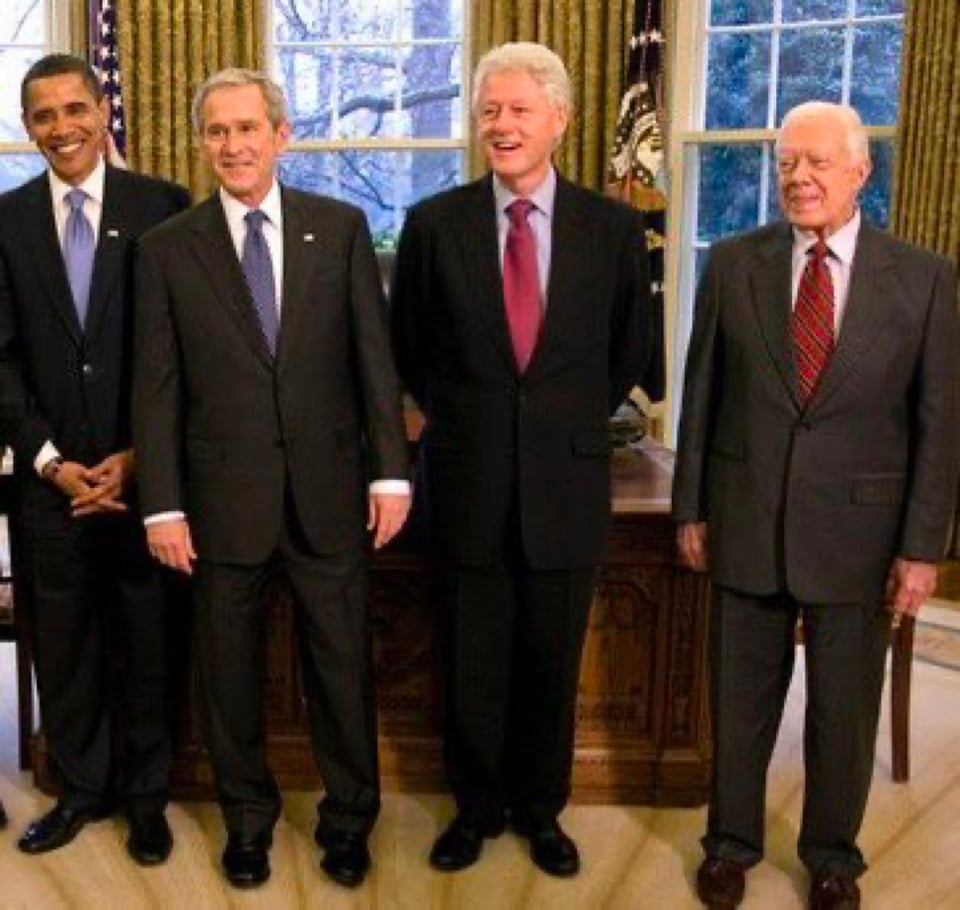
—————————————————————-
Prominent Latino journalists and celebrities challenge the recent Univision interview with Trump.
There is a very clear reason why the network is suddenly more favorable toward Trump. The Washington Post reported earlier this month that Jared Kushner, Trump’s son-in-law, is friends with a new executive at Univision, and that Kushner helped set up the network’s recent interview with Trump.
Jorge Ramos.
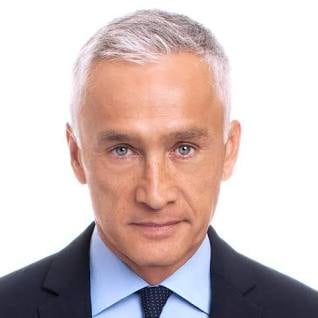
THE DANGER OF NOT CONFRONTING TRUMP.
I believe we must question and confront Trump for democracy, for the rights of immigrants and, simply, for good journalism.
Due to the strong criticisms after Univision aired an interview with Donald Trump on Nov. 9 -that put in doubt the independence of our news department, and created discomfort and uncertainty within the newsroom- it is necessary to take a step back from what was broadcast that day and explain, as always, my point of view.
Let’s begin with the most basic. Trump never would have given me an interview. On August 25, 2015, the then-presidential candidate ordered a bodyguard to expel me from a news conference in Dubuque, Iowa, after I tried to ask him some questions. “Go back to Univision!” he told me. I had gone to Iowa to ask him about his statements that Mexican immigrants were “rapists,” criminals and drug traffickers.
What few people know is that after that incident, Trump allowed me to return to the news conference and ask him questions for about 10 minutes. I confronted him about his plans to build a wall on the border with Mexico and deport millions of undocumented migrants. I mentioned that many Hispanics despised him for his anti-immigration rhetoric and that regardless of what he expected he would not win the Latino vote. And he did not, not in 2016 and not in 2020.
Our job as journalist is to question those in power. That’s what reporters do. That’s what I did in Iowa and what I have done with Trump since he announced his first presidential campaign.
In June of 2021, during a public event in Texas, I asked Trump if he would finally admit that he had lost the presidential election the previous year. “We won the election”, he answered falsely. That’s what became known as “The Big Lie.” The official results from the election Nov. 3, 2020 show Trump lost both the electoral vote and the popular vote. What’s more, he lost all the legal challenges he filed to delay or block Joe Biden’s legitimate election as president.
Trump has been a sore loser.
Trump today faces 91 charges for different alleged crimes, among them conspiring against the democratic system. In one recording, he is heard allegedly asking the Georgia secretary of state for 11,780 votes to overturn the results of the balloting. And after his speech on Jan. 6 2021, when he told followers that “if you don’t fight like hell, you’re not going to have a country anymore,” there was a violent insurrection at the US Capitol.
That’s not all. Trump separated thousands of children from their families at the border, made offensive comments about immigrants, attacked the concept of birthright citizenship for children of the undocumented, filled a lawsuit in 2015 against the company where I work and questioned the capacity of people – like Judge Gonzalo Curiel – for the simple fact of being Hispanic.
We cannot normalize behavior that threatens democracy and the Hispanic community, or offer Trump an open microphone to broadcast his falsehoods and conspiracy theories. We must question and fact-check everything he says and does.
That’s why it is very dangerous to fail to confront Trump. And that’s why it is our moral obligation to confront him every time there’s a journalistic opportunity to do it. But I understand that not everyone agrees, and I open the debate here.
I am convinced that journalists have two great responsibilities. One is to report reality as it is, not as we wish it would be. And the other is to demand an accounting from those in power and to challenge them.
Of course we should not take sides, and we are obliged to broadcast the messages of all candidates in the 2024 presidential election. But at the same time we cannot surrender our responsibility to ask hard and precise questions. That’s what journalism is for. These journalistic principles apply to everyone.
For example, recently I wrote a column criticizing Joe Biden for breaking his promise not to build a single foot of new wall at the southern border during his presidency. Also, when Barack Obama was president I confronted him in a town hall meeting for not keeping a campaign promise. “A promise is a promise”, I told him. He broke a commitment to introduce immigration reform -that would have legalized millions of undocumented immigrants- during his first year in office, when Democrats controlled both chambers of Congress and the White House. So it goes both ways.
Democracy is something that must be defended every day. And for journalists, the way to do that is to ask questions. Even if it hurts. Even if it makes someone uncomfortable. Silence almost never makes for good journalism.
For 39 years Univision has allowed me to report with absolute independence and freedom – and even to write columns like this one – and I will always be very grateful. That’s why I left Mexico and came to the United States.
This is what I believe, and I will continue to do it as a free journalist, wherever I might be. (https://jorgeramos.com/en/)
Anna Navarro.
John Leguizamo
Cozying up to Trump, Univision is betraying its Spanish-speaking viewers - Los Angeles Times.
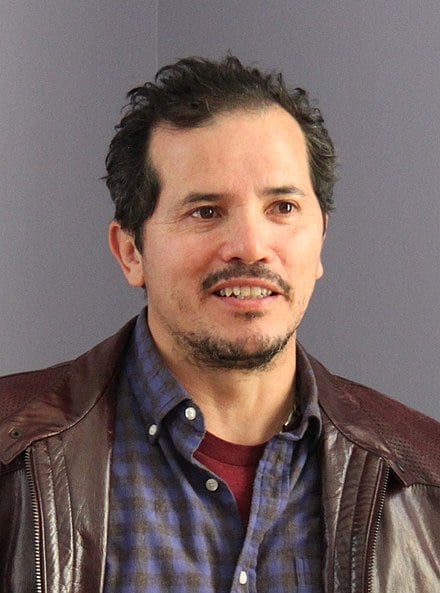
During presidential elections, Univision has served as one of the key Spanish-language networks reporting accurate information on candidates and their policies. By its own account, the network’s mission is to “inform and empower” the Latino community, and through that mission Univision has earned the trust of millions of Spanish speakers across the country.
Heading into the 2024 elections, Latinos expected Univision to remain a trustworthy and reliable source — at least until last week when it was reported that network executives met with former President Trump at Mar-a-Lago. And on Nov. 9 the network aired an hourlong interview with him that held a completely uncritical lens on the dangerous policies Trump espoused during his presidency and what he has vowed to set in motion if he is elected in 2024.
According to the Washington Post, executives at the network’s parent company, TelevisaUnivision, are changing their approach to Trump, which allowed him to spread falsehoods during the interview, whose viewers probably assumed Univision was still operating with journalistic integrity. Sadly, that’s not the case.
This cozy interview came just days before Trump’s inhumane and vicious immigration policy plan for 2025 was revealed by longtime aide Stephen Miller. It would include reinstating a Muslim travel ban, an end to birthright citizenship, a targeted campaign to “round up” undocumented immigrants and detain them in camps and the beginning of mass deportations regardless of an individual’s time in the U.S.
Additionally, Trump has promised that if elected he will end extremely popular immigration programs such as Deferred Action for Childhood Arrivals and revoke Temporary Protected Status and humanitarian parole.
These plans echo why Trump is considered the most anti-Latino president in American history and recall his four years in office stoking hate speech and causing suffering for so many people.
During his presidency, Trump even attacked Univision’s Jorge Ramos by expelling him from a news conference after he confronted the then-president about his immigration record.
Despite these past indignities and dangerous plans, Univision’s new corporate owners — one of whom is friends with Trump’s son-in-law, Jared Kushner — have decided to shift the network’s editorial approach and buddy up with Trump less than a year before an immensely consequential election for Latino voters. This shift has included canceling already-purchased Biden campaign advertising during the Trump interview and canceling the rebuttal to Trump’s interview with Biden’s director for Hispanic media, Maca Casado.
In a democracy, the role of the press is to help ensure that the government is accountable to the people it serves. Any corporate decision that undermines that role is dangerous and an abuse of the public’s trust.
As one of the most relied-upon news sources for Spanish speakers, Univision has a responsibility to report the facts and maintain journalistic integrity, regardless of which politician the CEO chooses to befriend.
For Univision to remain a credible source, executives must now prove to viewers that it is capable of upholding the principles of journalism. They must reaffirm their commitment to fact-checking and balanced, unbiased reporting. Univision should be reporting on the threat of disinformation used to influence Latino voters. Its millions of viewers, who will have a major role in the 2024 elections, will need the network to do its work with integrity. Univision’s reputation won’t last long if it doesn’t.
—————————————————————-
A Trump story that you must read. Must.
A story of lawlessness, cronyism, and corruption. With Trump running again for president and suggesting that he again intends to make full use of his pardon powers if elected, The Times decided to take a closer look at how the pardon came about and what it said about the Trump White House’s standards for clemency.
A Troubling Trump Pardon and a Link to the Kushners.
A commutation for a drug smuggler named Jonathan Braun had broader implications than previously known. It puts new focus on how Donald Trump would use his clemency powers in a second term.

In April 2022, Jonathan Braun, left, and his wife, Miriam, visited a Trump resort in Florida. Mr. Braun said they ran into the former president by coincidence.
Even amid the uproar over President Donald J. Trump’s freewheeling use of his pardon powers at the end of his term, one commutation stood out.
Jonathan Braun of New York had served just two and a half years of a decade-long sentence for running a massive marijuana ring, when Mr. Trump, at 12:51 a.m. on his last day in office, announced he would be freed.
Mr. Braun was, to say the least, an unusual candidate for clemency.
A Staten Islander with a history of violent threats, Mr. Braun had told a rabbi who owed him money: “I am going to make you bleed.” Mr. Braun’s family had told confidants they were willing to spend millions of dollars to get him out of prison.
At the time, Mr. Trump’s own Justice Department and federal regulators, as well as New York state authorities, were still after him for his role in an entirely separate matter: his work as a predatory lender, making what judges later found were fraudulent and usurious loans to cash-strapped small businesses.
Nearly three years later, the consequences of Mr. Braun’s commutation are becoming clearer, raising new questions about how Mr. Trump intervened in criminal justice decisions and what he could do in a second term, when he would have the power to make good on his suggestions that he would free supporters convicted of storming the Capitol and possibly even to pardon himself if convicted of the federal charges he faces.
Just months after Mr. Trump freed him, Mr. Braun returned to working as a predatory lender, according to New York State’s attorney general. Two months ago, a New York state judge barred him from working in the industry. Weeks later, a federal judge, acting on a complaint from the Federal Trade Commission, imposed a nationwide ban on him.
A New York Times investigation, drawing on documents and interviews with current and former officials, and others familiar with Mr. Braun’s case, found there were even greater ramifications stemming from the commutation than previously known and revealed new details about Mr. Braun’s history and how the commutation came about.
The commutation dealt a substantial blow to an ambitious criminal investigation being led by the Justice Department’s U.S. attorney’s office in Manhattan aimed at punishing members of the predatory lending industry who hurt small businesses. Mr. Braun and prosecutors were in negotiations over a cooperation deal in which he would be let out of prison in exchange for flipping on industry insiders and potentially even wearing a wire. But the commutation instantly destroyed the government’s leverage on Mr. Braun.
The investigation into the industry, and Mr. Braun’s conduct, remains open but hampered by the lack of an insider.
At multiple levels, up to the president, the justice system appeared to fail more than once to take full account of Mr. Braun’s activities. After pleading guilty to drug charges in 2011, Mr. Braun agreed to cooperate in a continuing investigation, allowing him to stay out of prison but under supervision for nine years — a period he used to establish himself as a predatory lender, making violent threats to those who owed him money, court filings show.
Since returning to predatory lending after being freed, Mr. Braun is still engaging in deceptive business tactics, regulators and customers say.
In working to secure his release, Mr. Braun’s family used a connection to Charles Kushner, the father of Jared Kushner, Mr. Trump’s son-in-law and senior White House adviser, to try to get the matter before Mr. Trump. Jared Kushner’s White House office drafted the language used in the news release to announce commutations for Mr. Braun and others.
In a telephone interview, Mr. Braun said he did not know how his commutation came about.
“I believe God made it happen for me because I’m a good person and I was treated unfairly,” he said, adding that his supporters tried “multiple paths” to get him out of prison but he had no idea which one succeeded.
He said the 10-year sentence he received for marijuana trafficking was excessive and made him a victim of the criminal justice system. He denied any wrongdoing as a lender, and insisted that he had never talked to prosecutors about cooperating in the criminal predatory lending investigation.
He said he had never met Jared Kushner. And he said a picture from April 2022, showing him and his wife on a golf course with the former president, had nothing to do with the commutation but was a chance three-minute encounter during a visit to a Trump property in Florida for a Passover event.
“I didn’t meet him because of what happened, I just happened to be there the same time,” Mr. Braun said.
Mr. Braun’s commutation highlights what former administration officials say were major problems at the Trump White House as it considered clemency applications: the lack of rigorous vetting of applications and the sidelining of the Justice Department, which has traditionally screened candidates.
Mr. Kushner took a major role in the less structured vetting process that resulted in Mr. Braun’s commutation. The Justice Department investigators from Manhattan involved in the cooperation negotiations with Mr. Braun were never consulted.
As other convicts seeking clemency did, Mr. Braun’s family retained Alan Dershowitz, the prominent lawyer and Trump ally who worked with Jewish organizations pushing for pardons, at least one of which had received financial support from the Kushner family.
Mr. Dershowitz, who represented Mr. Trump in his first impeachment, had a direct line into Mr. Kushner’s office, and succeeded in helping win clemency from Mr. Trumpfor a number of other people. Mr. Dershowitz said he did not remember what steps he took to help Mr. Braun but said they were minimal.
Jared Kushner declined to comment, and Charles Kushner hung up when called by a reporter, as did Jacob Braun, Mr. Braun’s father. The U.S. attorney’s office in Manhattan did not respond to messages seeking comment.
A spokesman for Mr. Trump said all pardon applications “went through a vigorous vetting and review process,” but he did not address specific questions about Mr. Braun’s commutation.
William P. Barr, a Trump attorney general who had left by the time of the Braun commutation, said when he took over the Justice Department he discovered that “there were pardons being given without any vetting by the department.”
Mr. Barr added that he told Trump aides they should at least send over names of those being considered so the department could thoroughly examine their records. While the White House Counsel’s Office tried to do so, the effort fell apart under the crush of pardon requests that poured in during the final weeks before Mr. Trump left office, according to people with direct knowledge of the process.
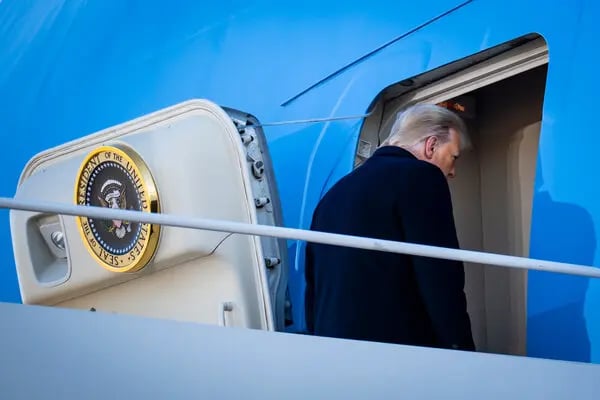
Mr. Trump boarding Air Force One for the last time on Jan. 20, 2021. He pardoned Mr. Braun in the final hours of his presidency.
Marc Short, the chief of staff to Mr. Trump’s vice president, Mike Pence, said when the vice president’s office was approached by Mr. Trump’s aides about clemency applications, it opted not to participate.
“The pardon process at the end of the administration was so unseemly it would make the Clintons blush,” Mr. Short said, referring to the final-days pardons issued by President Bill Clinton — including one to the fugitive financier Marc Rich, whose ex-wife donated $450,000 to Mr. Clinton’s presidential library.
Threats and a 10-Year Sentence
Mr. Braun’s path to receiving a last-minute commutation began in 2009, when the U.S. attorney’s office in Brooklyn, working with the Drug Enforcement Administration, raided what prosecutors said was a stash house for a marijuana smuggling ring run by Mr. Braun.
When Mr. Braun found out about the raid, he rented a car and drove 25 hours straight from Florida to an Indian reservation in upstate New York where, dressed in all black, he was smuggled into Canada, according to court filings. He then fled to Israel.
The Justice Department placed him on a special Interpol list that asked Israel to apprehend him. By 2010, he was back in New York, the Justice Department had charged him and he was behind bars.
In the days after his arrest, prosecutors asked a federal judge to keep him in jail until he went on trial. The prosecutors said Mr. Braun could not be deterred and was violent or willing to use the specter of violence against those who owed him money or might turn on him. Mr. Braun, the prosecutors said, had access to millions of dollars in untraceable cash, and was willing to do anything to stay out of prison.
The judge ordered that Mr. Braun be held pending trial. After nearly a year and a half in custody, Mr. Braun agreed to plead guilty. As part of the plea deal, he began cooperating secretly with the government’s investigations into other drug smugglers, particularly higher profile ones abroad, according to a former law enforcement official, who spoke on the condition of anonymity to discuss the internal workings of an investigation.
In exchange, the prosecutors agreed to release Mr. Braun from jail, putting him on house arrest and delaying his sentencing on the drug charges while they pursued new cases with his help. It is unclear what information Mr. Braun provided the authorities or whether it led to convictions.
Often, a cooperator can remain free for a few months by providing investigators with useful information. Sometimes, a court will hold off sentencing for a year or two as the cooperation continues. Throughout the process, federal authorities are supposed to monitor cooperators to ensure they do not break the law.
For reasons that remain unexplained, Mr. Braun was permitted by the U.S. attorney’s office in Brooklyn to live relatively freely for nearly the next decade, and he was able to turn his focus to an enterprise rife with cash and threats: providing loans to struggling small businesses that often had nowhere else to turn.
Former prosecutors and defense lawyers said they had never heard of a defendant being allowed to delay sentencing for such a long period or using his freedom to engage in the conduct he did. A spokesman for the Brooklyn federal prosecutor’s office declined to comment on Mr. Braun’s case.
The business Mr. Braun entered is known by many names: the merchant cash advance industry, predatory lending or, in the view of some law enforcement officials, loan sharking.
Small businesses — like restaurants and contractors — have long faced a problem: They need cash on a daily basis to buy ingredients and supplies, and pay employees so they can operate while awaiting customer payments.
Banks often won’t lend to them, especially small firms with troubled credit histories, providing an opening for the merchant cash advance business to offer them financing on strict, sometimes usurious, terms that include high-interest rates and exorbitant fees. (Technically, they provide cash in exchange for a percentage of future revenues, an arrangement that typically gives them access to the borrower’s books and sometimes the borrower’s bank accounts.)
An examination of court records by The Times found that between when the U.S. attorney’s office in Brooklyn first let him out of prison in 2011 and when he reported to prison in 2020, Mr. Braun was accused of violently threatening eight people who owed him money. Another man accused Mr. Braun in a lawsuit of shoving him from the deck of a house in Staten Island in 2018.

Mr. Braun eventually reported to the federal prison in Otisville, N.Y., in 2020.
Among those threatened was a real estate developer, who said Mr. Braun told him: “I will take your daughters from you,” according to court documents.
Another borrower said in an affidavit Mr. Braun told him, “Be thankful you’re not in New York, because your family would find you floating in the Hudson.”
Over that time, companies connected to Mr. Braun made 1,900 fraudulent and illegal loans, some with interest rates greater than 1,000 percent, according to the New York State attorney general.
Even as Mr. Braun was starting to become a threatening presence, the U.S. attorney’s office in Brooklyn actually gave him more freedom. In May 2017, prosecutors and probation officers approved Mr. Braun being removed from house arrest.
Five months later, Mr. Braun threatened the rabbi of a synagogue that had borrowed money from him, according to New York’s attorney general. Mr. Braun told the rabbi he would beat and “publicly embarrass him,” adding: “I am going to make you bleed” and “I will make you suffer for every penny.”
Nearly a decade after he was first charged in the drug case, prosecutors scheduled his sentencing. Anonymous letters accusing him of violent threats were then filed on the docket of the judge overseeing his case.
Despite his cooperation with the ongoing drug investigations, the judge sentenced him to 10 years in prison. Mr. Braun tried to appeal, but weeks before the pandemic hit in early 2020, he reported to the federal penitentiary in Otisville, N.Y.
In prison, Mr. Braun’s legal troubles actually worsened. In June 2020, New York’s attorney general and the Federal Trade Commission, which was run by a Trump appointee at the time, sued him for his role as a predatory lender. The New York attorney general credited reporting by Bloomberg News — which in 2018 first documented Mr. Braun’s business practices and revealed last year that he had returned to predatory lending — as the impetus for the suit.
At the same time, a dogged New York Police Department detective named Joseph Nicolosi, who was assigned to work as an investigator for the U.S. attorney’s office in Manhattan, was trying to build a wide-ranging criminal case focused on predatory lenders.
The inquiry faced a big challenge. Unlike many financial fraud cases, where the government relies on documents to prove charges, federal prosecutors concluded they needed something more in this case: a turncoat to flip on higher-ups, explain the intricacies of lending agreements, say they knew what they were doing was wrong and serve as a narrator on the witness stand.
Finding that witness was proving difficult, but investigators believed they had a strong candidate sitting behind bars.
So in the fall of 2020, Mr. Nicolosi drove to Otisville to meet with Mr. Braun. Mr. Nicolosi had previously tried to flip Mr. Braun when he was free, but now Mr. Nicolosi — armed with a possible get-out-of-jail card in exchange for cooperation — had leverage over him as he sat marinating in the misery of federal prison.
At the meeting, which Mr. Braun’s lawyer attended, both sides discussed what a deal could look like.
Mr. Braun made clear he would do anything the government asked of him — including wearing a wire to record calls with his former business partners — if the government would agree not to prosecute him for his role in the lending business, according to a person familiar with the matter.
Ties to the Kushners
Negotiations between Mr. Braun and prosecutors stretched into the final days of Mr. Trump’s presidency. But what the prosecutors did not know was that Mr. Braun, his family and allies were pursuing an entirely different effort to help him regain his freedom through the White House’s clemency process. And among the channels they were exploiting was a tie to the Kushner family.
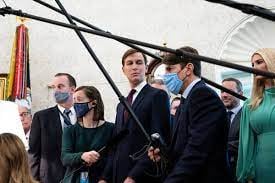
Mr. Braun had ties to the family of Jared Kushner, Mr. Trump’s son-in-law and a former White House senior adviser.
Mr. Braun, The Times found, was in the inaugural class of the Kushner Yeshiva High School in Livingston, N.J., which was heavily funded by Jared Kushner’s family. Mr. Braun enrolled in its first freshman class, alongside Jared Kushner’s youngest sister, Nicole.
In an interview, a merchant cash advance dealer recounted how a cousin of Mr. Braun — whom Mr. Braun put in charge of his business when he went to prison and who took on a major role in trying to get him out — had told him in the wake of the commutation that Mr. Braun’s father, Jacob Braun, had sought help from Jared Kushner’s father, Charles Kushner, about getting their pleas for a commutation before Mr. Trump.
The cousin, Isaac Wolf, was said to have recounted that Charles Kushner and Jacob Braun had known each other for many years. Mr. Wolf credited the Kushner family with coming through for Mr. Braun, the merchant cash advance dealer said, speaking on the condition of anonymity because he did not want to be publicly associated with Mr. Braun.
Others who dealt with Mr. Braun also later relayed to investigators that they had been told that the Braun family helped secure the commutation by relying on their connections to the Kushner family.
The Brauns also retained Mr. Dershowitz, a Trump ally who developed such a strong relationship with Jared Kushner that he nominated Mr. Kushner for the Nobel Peace Prize for his work on Middle East peace 10 days after Mr. Trump left office.
Mr. Dershowitz said Jacob Braun would call him regularly.
“Every single Friday by 3 o’clock in the afternoon: ‘Hi this is Jacob Braun, I’m so upset my son is still in prison, what can you do? It’s unfair, he’s a good boy,’” Mr. Dershowitz recounted.
Mr. Dershowitz said he handled so many clemency requests that he could not recall what he did for Mr. Braun, whom he might have talked to at the White House about his case or how much he was paid. But he said his involvement was minimal, perhaps just a phone call.
In the chaotic final weeks of the Trump presidency, the volume of clemency requests overwhelmed the White House Counsel’s Office. Requests were being fielded by numerous White House officials — and many came in through Mr. Kushner’s office.
It is unclear what type of due diligence, if any, the White House did on Mr. Braun. The New York attorney general and the F.T.C. had put out news releases about their civil actions against him in June 2020, and the suits they filed were a matter of public record. An inquiry to the Justice Department could have revealed the plea deal discussions.
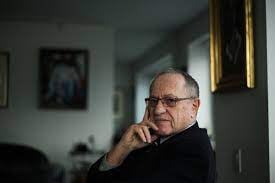
Jacob Braun, Mr. Braun’s father, made contact with and retained Alan Dershowitz, seen in a 2015 photo, the prominent lawyer and Trump ally who was active in seeking clemency for convicts.
Just hours before Mr. Trump left office on Jan. 20, 2021, the White House sent out the news release, written by Mr. Kushner’s office, announcing Mr. Braun’s commutation, along with similar summaries for the 143 convicts who received pardons and commutations in the final batch, according to a person familiar with the matter. Mr. Kushner thought it was important to honor each person granted clemency with a personalized write-up, the person said.
The release misspelled Mr. Braun’s first name. And it overstated the time he had served in prison.
“Upon his release, Mr. Braun will seek employment to support his wife and children,” the release said.
The federal investigators in Manhattan learned of the commutation early that morning, immediately calling Mr. Braun’s lawyer to express their fury over how the president had undercut his own department’s investigation by removing all the leverage prosecutors had over Mr. Braun.
In the weeks that followed, investigators made another attempt to reach a cooperation deal with Mr. Braun, meeting with him in person. But no longer needing help getting out of prison, Mr. Braun essentially called their bluff, signaling that if they thought they had a case against him they should indict him. Since then, the prosecutors have brought no charges against Mr. Braun or anyone else with ties to him in the industry.
Back in Business
Just a few months after his release, Mr. Braun returned to working in the merchant cash advance business.
Amid the ongoing suits against him by state and federal regulators, he remained in a relatively behind-the-scenes role. While he would make major decisions, he would use an email account that did not include his name, his name was left off business documents and his interactions with customers were limited, according to court documents and a former merchant cash advance dealer.
But in the experience of at least one borrower who dealt with him, his business practices remained unchanged.
Dr. Robert Clinton is a North Carolina physician who during the pandemic turned his urgent care facility into a Covid testing center. He turned to merchant cash advance dealers because it took months for insurance companies and the federal government to reimburse him.
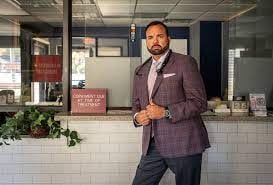
Mr. Braun’s companies made arrangements with Dr. Robert Clinton for loans and eventually pushed him to the brink of financial ruin.
Relying on similar tactics to what he was accused of employing before he went to prison, the companies affiliated with Mr. Braun withheld some of the financing they had agreed to provide Dr. Clinton but charged him interest on the full amount, imposed heavy fees with little or no warning and unilaterally withdrew money from Dr. Clinton’s bank accounts, according to court documents.
At one point, another merchant cash advance dealer who had lent money to Dr. Clinton called him in a panic to warn about Mr. Braun.
“You gotta get away from him and pay him off — we are all afraid of him — anytime Jon Braun is involved he could seize your assets, block your bank accounts,” the other merchant cash advance dealer told Dr. Clinton, in the doctor’s recounting of the conversation.
As Dr. Clinton’s finances deteriorated, he got a call from a man who claimed his name was Mike Wilson and that he was working for one of the Braun-affiliated lenders. The man told Dr. Clinton that he would send a private jet down to pick him up so he could bring expensive watches he had to New York to use as collateral for the money he owed, Dr. Clinton said.
In an apparent slip-up during conversations with Dr. Clinton at the time, the man said: Refer to me as Jon.
Dr. Clinton rejected the idea and, with help from a lawyer, Shane Heskin, sued the Braun-affiliated companies, saying they had fleeced him for over a million dollars.
A major portion of the suit was dismissed because North Carolina usury laws provided no protection for Dr. Clinton. Now, Dr. Clinton — who still owes other merchant cash advance dealers several million dollars — spends his days doing some telemedicine and the rest of his time trying to get money back from insurance companies and the federal government.
In a filing this summer, the New York attorney general said Mr. Braun, through his companies, “continues to commit usury.”
Mr. Braun continues to portray himself as a victim of an unfair criminal justice system.
“What is so bad about me?” he said in the interview with The Times. “I never hurt anybody, never did anything wrong to anybody.”

Mr. Braun and his companies put liens on Dr. Clinton’s business, leading to cascading financial problems that Dr. Clinton said cost him $1.6 million. (New York Times by y Michael S. Schmidt, Maggie Haberman, Jonathan Swan and Alan Feuer).
A Reminder of Jared Kushner’s Testimony to the January 6th Committee.
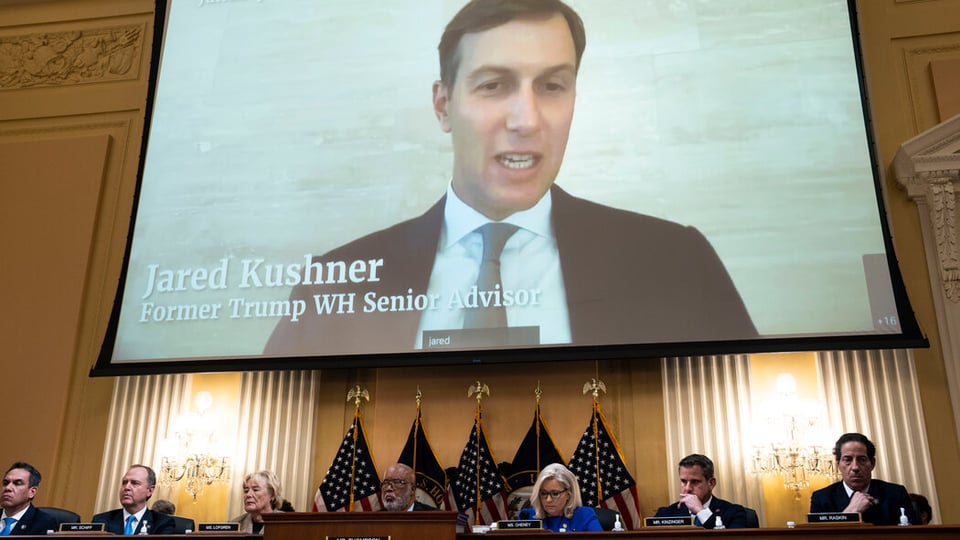
Jared Kushner, former President Donald J. Trump’s son-in-law and senior adviser, was featured prominently in videotaped testimony saying that he was engrossed in pushing through dozens of pardons at the end of the administration and dismissed threats of resigning by the White House counsel as “whining.”
The video showed Representative Liz Cheney asking Mr. Kushner about repeated threats to resign made by the counsel, Pat A. Cipollone, over the questionable conduct by Mr. Trump.
“Jared, are you aware of instances where Pat Cipollone threatened to resign?” she was shown asking.
“Like I said, my interest at that time was on trying to get as many” pardons done as possible, Mr. Kushner said. “And I know him and the team were always saying, we are going to resign, we are not going to be there if this happened, if that happens. So I kind of took it up to be just whining, to be honest with you.” (New York Times, June 9, 2022).
—————————————————————-
Once again, Trump promises to end Obamacare.
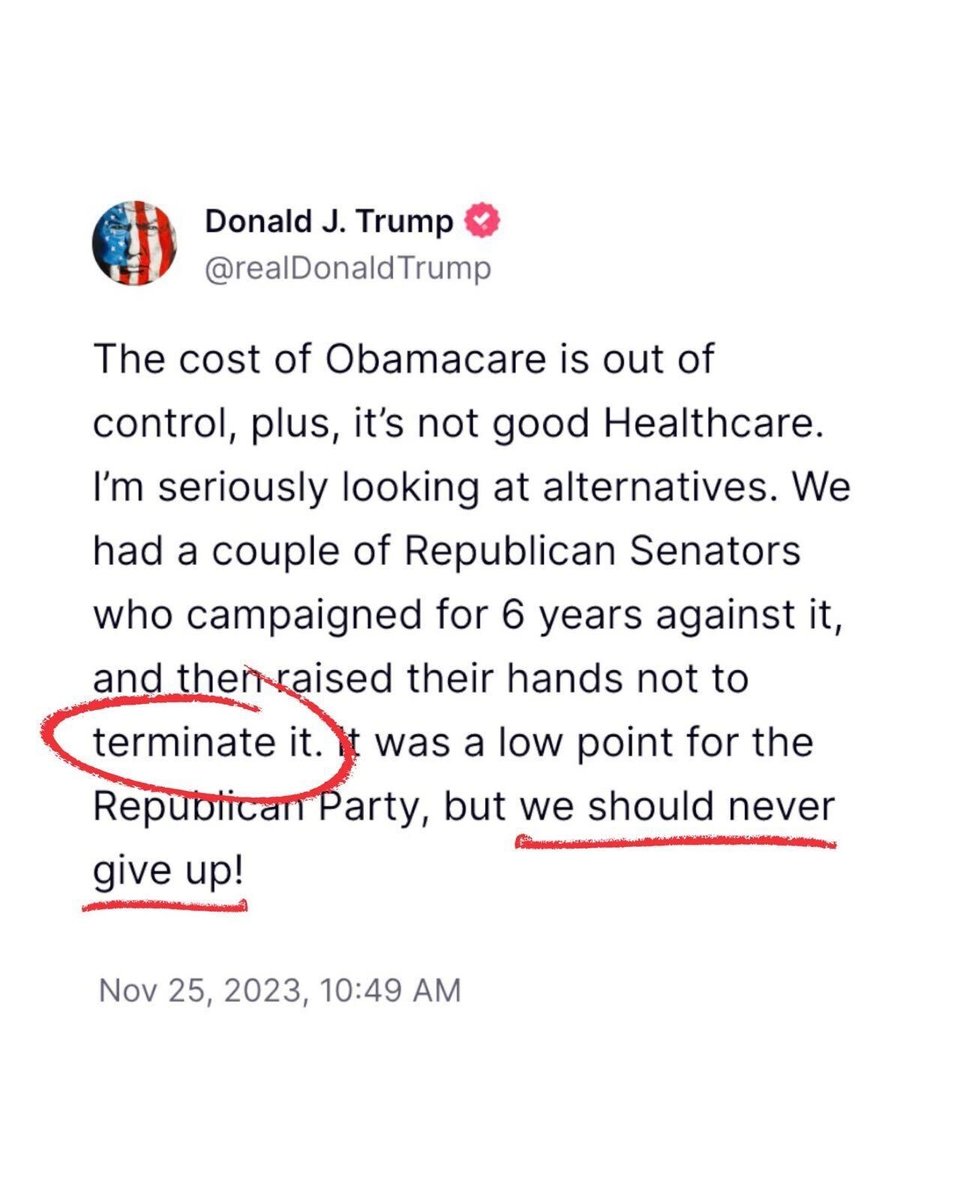
Is Trump’s preoccupation with Obamacare based on his hatred of Obama, his anger at Senator John McCain’s non-partisan vote that saved the Affordable Care Act, his petty petulance at having his will thwarted, or maybe all three reasons? It certainly is not based on caring about the healthcare Americans receive.
BREAKING — Florida man with 91 felony charges wants to terminate health insurance for 40 million Americans.
— Tristan Snell (@TristanSnell) November 28, 2023
—————————————————————-
Correction to Monday’s Roundup.
As you may have noticed, 2 posts on Monday’s Roundup were misplaced. Below is how they should have been posted. Sorry about the mistake.
Hillary. With her wits about her. As ever.
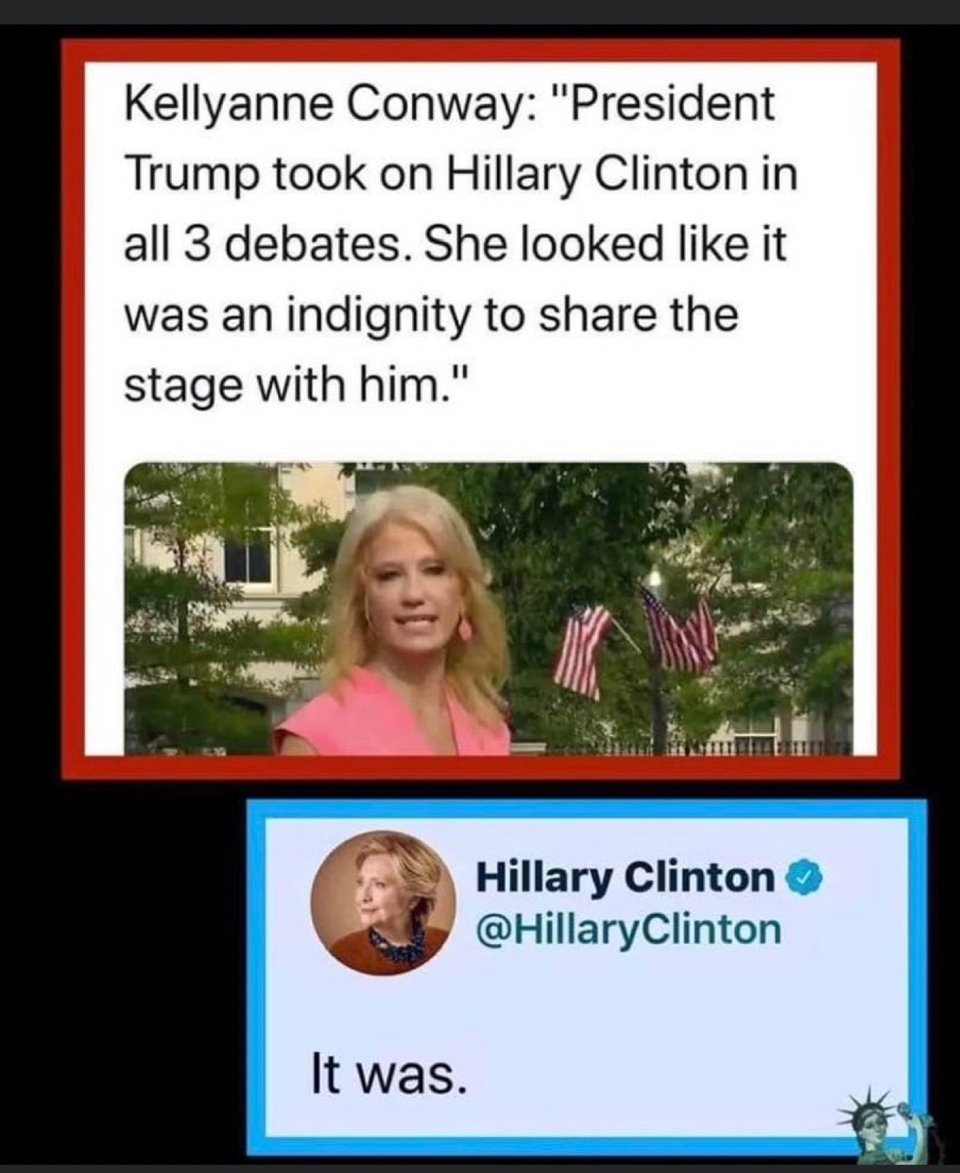
An Election we should all care about.
https://x.com/occupydemocrats/status/1562332498163531776?s=61&t=I_Od53CbnPTsbLcD0baXPg
Here is a bonus, reminding us of a fact to keep in mind.
Let’s make sure we win the House in 2024.
If neither candidate in 2024 gets 270 electoral votes, did you know The House decides who the President is by majority delegation? Republicans currently control 26 delegations.
— Symone D. Sanders Townsend (@SymoneDSanders) November 27, 2023
Your vote is your voice.
Do you want House Republicans speaking for you? pic.twitter.com/OsqmO5QHxF
—————————————————————-
Will women have a Seat at the OpenAI table?
When the OpenAI chaos finally quieted down last week, the media was quick to name winners. Sam Altman—the OpenAI cofounder and CEO who was fired by OpenAI’s board, then hired by Microsoft, then reinstated as OpenAI CEO—certainly came out on top. So did Microsoft, the biggest investor in the ChatGPT-developer, which ended the week with deeper ties to Altman and his posse of devoted employees. Capitalists too were triumphant; the board reshuffle that led to Altman’s return expelled members who approached AI cautiously in favor of those who appear more eager to commercialize its power.
It is probably a stretch to say that women were the losers when all was said and done; but if they weren’t the losers, they were certainly left out.
The world’s top AI developer is now led and governed by all men: Altman, president Greg Brockman (who left and returned alongside Altman), and a three-person interim board that includes Adam D’Angelo, cofounder and CEO of Quora Inc. and a returning director; Bret Taylor, former co-CEO of Salesforce Inc.; and Larry Summers, former U.S. Treasury secretary.
The two women who served on OpenAI’s board when it voted to fire Altman—Tasha McCauley, CEO of GeoSim Systems, and Helen Toner, director at Georgetown University’s Center for Security and Emerging Technology—are out as directors, along with Ilya Sutskever, OpenAI’s chief scientist (who remains at the company). The three departed board members were safety-conscious and reportedly opposed Altman’s aggressive plans to monetize OpenAI’s technology; their ouster seems to have paved the way for Altman’s return.
Mira Murati, OpenAI CTO, is also absent from the post-crisis spotlight. She was named interim chief executive immediately after Altman’s firing, only to be replaced two days later by Twitch cofounder Emmett Shear, who has a history of questionable tweets related to sex and dating (and who himself lasted only 72 hours in the job).
The makeup of OpenAI’s current leadership has raised alarm among observers who recognize OpenAI’s vast influence.
“I guess we know that the revolutionary new future of humanity will be in the most ethical of man hands,” Emily Bell, a founding director of the Tow Center for Digital Journalism, wrote on X (formerly Twitter).
“I’m thrilled for OpenAI employees that Sam is back, but it feels very 2023 that our happy ending is three white men on a board charged with ensuring AI benefits all of humanity,” Ashley Mayer, CEO of venture capital firm Coalition Operators, wrote on X. “Hoping there’s more to come soon.”
And in fact, it’s now up to D’Angelo, Taylor, and Summers to vet and expand the board to up to nine people, according to the Verge, and there are whispers of adding women, according to Bloomberg. Names floated include former Yahoo CEO Marissa Mayer, billionaire philanthropist Laurene Powell Jobs, and former Secretary of State Condoleezza Rice.
The usual pushback has followed. “What matters is having directors who deeply understand AI and will stand up to Sam,” X owner Elon Musk tweeted in response to Bloomberg’s story. “Human civilization is at stake here.”
OpenAI did not respond to a request for comment.
Why should OpenAI’s board include directors who are not white men? For one, because of its governance structure, OpenAI’s board has unusual control over the company (as Altman’s initial firing shows). The company, in turn, arguably has unprecedented sway in the business world, with corporations globally racing to adapt to the ChatGPT era. The board controls the OpenAI nonprofit, which controls the for-profit arm. The arrangement is meant to ensure OpenAI follows its mission and to prevent any one corporate entity—including investors like Microsoft, which doesn’t have a board seat—from dictating how the powerful, potentially dangerous technology is used.
Second, artificial intelligence is created by humans. Their biases end up in the products. And AI systems, including OpenAI’s, have already been found to produce biased responses. Diverse leadership seems like the bare minimum to help guard against such outcomes.
In all the mayhem, OpenAI’s mission—to “ensure that artificial general intelligence benefits all of humanity”—received an extraordinary amount of play. If Altman and others at the company truly believe that statement, it only makes sense for the glorious diversity of humanity to be better represented in their decision. (Alicia Adamczyk, Broadsheet).
—————————————————————-
How strong is the Economy? Black Friday seems to make that clear.
Black Friday spending sets new record as consumers open wallets.

Americans set a new online spending record for Black Friday this year.
Driving the news: Consumers shelled out $9.8 billion Friday, a 7.5% jump from last year, Adobe Analytics reported Saturday morning.
The momentum was set on Thanksgiving Day, which saw a 5.5% increase from last year to $5.6 billion, per Adobe data.
Separate figures from Salesforce showed Thursday's spend rose just 1% to $7.5 billion year-over-year; yet Black Friday's online spending shot up 9% year-over-year, to $16.4 billion.
Why it matters: The tradition of whipping out wallets after the turkey and cranberry sauce remains strong, even as retailers launch deals earlier and as consumers remain in a relatively gloomy mood about the state of the economy.
The earlier discounts trend took off in 2020 with the pandemic and also pushed more deals online in order to reduce crowds in stores.
The big picture: Even though inflation has cooled, consumer sentiment has fallenamid worries that the softening inflation trend could reverse.
Americans now expect prices to rise to an annual pace of 4.5% over the next year, up from 4.2% in October and from 3.2% in September, the University of Michigan's consumer survey revealed Wednesday.
Meanwhile, the latest Consumer Price Index as of October shows prices rising 3.2% year-over-year, down from 3.6% in September.
Be smart: Retailers ranging from Walmart, BJ's Wholesale Club, Coach and Kate Spade parent Tapestry, Dick's Sporting Goods, Best Buy and Abercrombie & Fitch have been sharing cautious forecasts about their all-important holiday quarter period.
Bank of America found that out of 43 retailers that issued earnings forecasts, 37 (or 86%) came in lighter than expected, CNBC reports.
The intrigue: Americans appear to want to return to a tradition of shopping after the Thanksgiving plates are scraped clean.
This year, 95% of people said they plan to holiday shop, up from 92% in 2022 and 88% in 2021, according to a late summer Deloitte survey.
Respondents also said they plan to spend an average of $1,652 on holiday shopping — exceeding pre-pandemic levels for the first time, the results show.
What they're saying: "Black Friday re-asserted its dominance this season with record spend of $9.8 billion driven by new demand for the major sales' day," Vivek Pandya, lead analyst, Adobe Digital Insights, said in a statement.
"The decline in online prices over the last year has created a favorable environment for consumers with strong discounts this season that are tempting even the most price conscious consumers." (Axios).
—————————————————————-